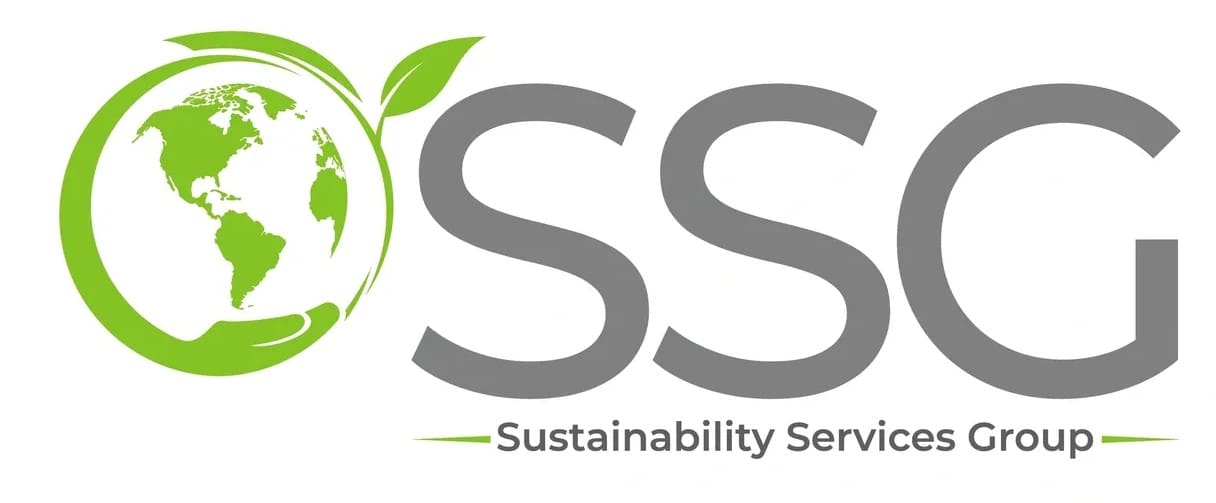An argument in support of “ESG”

No matter where in the world you live, you are bearing witness to an accelerating number of extreme weather and climate-driven events. Simultaneously, the concept of ESG and ESG-like disclosure and operating principles is coming under attack. Please check out my recent “editorial” on why ESG should matter to everyone.
An argument in support of “ESG”
It’s quite challenging, these days, to open a news site, watch a media broadcast, or blog and not find some reference to corporate ESG (Environmental, Social, and Governance) guidelines for operating and reporting. And in numerous cases, these stories are about the inherent “problems” contained in these guidelines. Some opponents are attacking it as a “woke ideology†designed to introduce subjective performance measures and targets that should be, in their view, solely objective (i.e., solely financial). Proponents are quick to point out that ESG is, at its heart, a framework that allows for “good management” of an enterprise, and “good stewardship” of the planet. And that achieving both (good management and good stewardship) positively impact a company’s financials – with the converse also being true. And many companies, who seem to be caught in the middle, are not sure how to react. Some have quietly downplayed use of the term in their marketing. Others have paused the hiring of ESG specialists. Still others have not missed a beat and are going all out on their “ESG Agendaâ€. Whether supporter, critic, or bystander, ESG has, unfortunately, become the latest battle in the, awkwardly named, “culture warsâ€.
As the US SEC is poised to announce a new set of requirements aimed at enhancing and standardizing climate-related disclosures, and as these requirements are expected to encompass a broad range of environmental, social, and governance elements, it’s a good time to revisit the value of ESG, and ESG-like reporting frameworks and standards.
Full disclosure… I am a supporter of embracing any kind of framework, ESG included, that will incent institutions to become better at identifying and mitigating risk, while becoming better stewards of the planet and the communities that they operate in and serve. As an investor, I firmly believe that there are financial opportunities and threat indicators that can be found in the disclosures actioned by ESG and ESG-type reporting – disclosures that transcend tried-and-true financial disclosure frameworks. As an occupant of our planet, I also firmly believe that we need to shine a much brighter light on our changing climate, and the catalysts for that change. And as someone who cares about how businesses impact people and communities, I believe it’s time to gauge how good, or bad, a “neighbor” a company really is. Whether it is ESG, or one of the many other sustainability frameworks, something is needed to allow for the actioning of these beliefs. And while I am not naive enough to think that everyone on the planet does, and should, share my belief system, I do think that more-and-more people, will.
In this article, I’d like to push through some of the noise and highlight four reasons why critics of ESG should reconsider their stance. Each of these reasons illustrate how the ideas and concepts around ESG can be critical levers towards addressing the myriad challenges to businesses presented by a changing planet.
1. Predicting and managing enterprise risk
The concept of ESG, and ESG reporting, was developed as a framework to allow investors to better evaluate key financial and operational risks to the operations of a business. Companies were encouraged to ask themselves, and provide answers, to questions such as:
- “Are our operations vulnerable to disruptions from severe weather events that are, inarguably, on the increase?â€
- “Are our supply chains exposed to, or driving, geopolitical conflicts?”
- “Could our customer’s buying habits shift, to our disadvantage, as a result of climate-driven social and geopolitical events?”
- “What is the impact of climate change on our workers and our supplier’s workers?”
To some, these questions might seem subjective and irrelevant to the mission of a company. In actuality, their relevancy to an enterprise’s mission and performance is significant. These questions can expose risks to a firm’s brand, their supply chain, their workers, and their revenue and profits. I don’t know many shareholders, customers, employees, lenders, and local governments who would not be interested in the answers to these and many other, similar, questions.
2. Arresting climate change
The data is there. The earth is warming. The climate is changing. Severe weather events are steadily increasing in number and intensity. Just look at the recent empirical evidence of records being broken for everything from rainfall amounts, to heat indexes, to property loss. Insurance payouts from severe events are skyrocketing, with some insurers abandoning entire regions. A vast scientific community has determined strong, almost irrefutable, causality between this warming and the release of Greenhouse Gasses (GHGs) into the atmosphere from a variety of man-made, and man-influenced, processes. All of this is a data-driven, science-based, fact. Yes, the natural world is cyclical, but this cycle of extreme weather is decidedly human made.
At the very least, it should be important for companies to understand their own role in pumping GHGs into the atmosphere. Like with “Predicting and Managing Enterprise Risk”, there are a variety of questions that stakeholders, and responsible companies, should want answered. Some of these are:
- “How much GHG do we directly release into the atmosphere through our operations?â€
- “How much GHG do we indirectly drive through the dozens of standard operational activities such as using power from a coal-fired electrical utility; employees traveling by airplane; and finished products being shipped by third-party freight haulers?â€
- “How might renewable energy sources – such as solar, hydro and wind – fit into our operations, and what is the net benefit of those alternative sources?â€
I believe that numerous stakeholders would be interested in not only knowing what a company’s contribution is to the growing GHG problem, but how that company plans to reduce its contribution; and what might the impact be – both positive and negative – on financial performance?
3. Ensuring broad-spectrum, and inclusive, thinking and decision-making
Many critics of ESG will say:
“Ok, the environmental stuff is important, and I get that a company should have a fair and efficient governance structure (i.e., a way to ensure good oversight and management); but where I have a problem, is in all of this “social†stuff. There’s no place for ideology in effectively running a company.â€
In this highly-charged political environment, it’s understandable how some might bristle at the notion that ESG is a framework for advancing a particular ideology. But let’s assume that you are a potential investor whose only concern is that revenue and profit continue to grow, and the financial value of the company rises. Wouldn’t you want to know some of the following:
- “Can they move into new markets with customers beyond our “traditional†buyers (Think American professional sports leagues and their focus on attracting fans outside of the USA)?”
- “Does the company’s internal decision-making process – especially for critical decisions – incorporate different views and perspectives, or is it fairly homogenous?”
- “Are they maximizing the talent found in an increasingly competitive recruiting landscape by sourcing the best-and-brightest – even if the potential talent may come from non-traditional sources or backgrounds?”
An individual who wants answers to these may be doing so for ideological purposes, but they are also questions that should be relevant, and a high priority, to anyone with a financial interest in said company.
4. Being a steward of the community at-large
As we have discussed, many ESG critics zero in on the “Social” element of the framework, focusing on the unnecessary need (in their view) for disclosure frameworks to focus on the diversity and inclusiveness of a company’s leadership. I hope that I have addressed this above (in #3). But even if my argument hasn’t convinced you, I would say that continued pushback is misguided. The gist of the “S” in “ESG” is that companies are expected to avoid adversely impacting the human and civil rights of their employees, the employees of their suppliers, and the communities in which they operate and serve. This is less about “DE&I” and more about:
- “Does the firm ensure that worker’s rights are not serially violated – especially the employees of our suppliers and subcontractors?”
- “Do they conduct business ethically and responsibly, adhering to pro-conservation and anti-corruption best practices?â€
- “Are they negatively impacting communities, and resources, directly, or indirectly through their operations and/or supply chain?” (Think significant water extraction from a diminishing aquifer or body of fresh water. Or discharging toxic byproducts into local waters and/or the air)
These are all critically important questions that have a significant impact on the financial performance of a company; and the ability to attract employees, customers, investors and lenders. Historical business rolls are littered with bankrupt and dissolved companies who ignored these questions – at their peril.
I will be the first to admit that some of the broad (i.e., beyond simply “environmental”) frameworks need an updating. In some cases, elements are over-simplified. In other cases, entire industries are overlooked. And too many proxy values exist because of the lack of available data. The good news is that these frameworks are a work-in-process with updates coming regularly. “ESG” also suffers from, like many other societal concepts, a significant case of misunderstanding. It is not about quotas. It is not an ideology. It is not about picking winners. It is about putting in place, a construct upon which to evaluate internal risks to a company, as well as to determine how said company is positively, or negatively, impacting the outside world. Choosing not to understand these risks and outcomes is not an option – at least it shouldn’t be. As a society, we should actively, and collectively, champion methods and frameworks that address two of the most significant, and existential, challenges facing us – addressing climate change-related impacts to people, institutions, and infrastructure; and protecting our critical resources, both natural and human.
